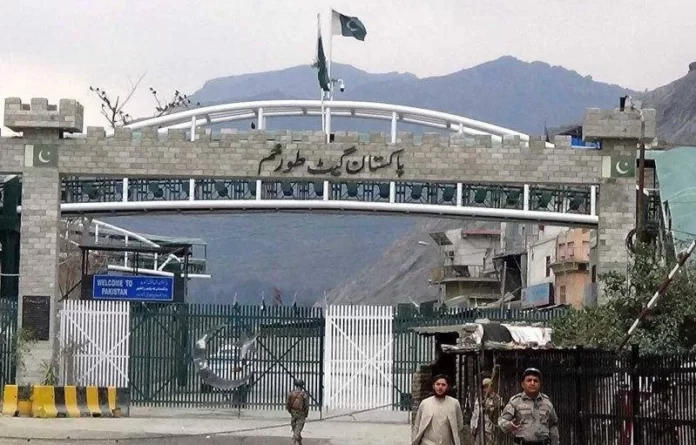PESHAWAR – The Torkham border remained closed for the 38th consecutive day amid escalating tensions between Pakistan and Afghanistan, disrupting trade and daily movement while leaving workers and drivers facing acute economic difficulties.
The prolonged closure has halted cross-border pedestrian traffic and commercial activities, leaving transporters, drivers, laborers, traders, and the general public struggling. With trade stalled, many laborers and taxi drivers at the border have resorted to passing time by playing football, highlighting the human cost of the disruption.
The border shutdown has also triggered economic hardship in Pakistan’s Sawabi district, where farmers and landowners are reporting financial stress. Despite the pea crop being ready for harvest, market prices have plummeted, leaving growers in dire straits.
Local farmers explained that continuous border closures have halted the export of peas, directly affecting domestic markets. Agricultural experts noted that large quantities of peas are usually sent to Afghanistan, but the current shutdown has increased supply while reducing buyers, driving prices down. In several areas, farmers cannot even recover their production costs.
Farmers have urged the government to take immediate action to reopen the Torkham border or establish appropriate support prices in local markets to protect them from further financial losses. The prolonged closure underscores the wider economic impact of the border disruption, affecting both trade-dependent communities and the agricultural sector.
























